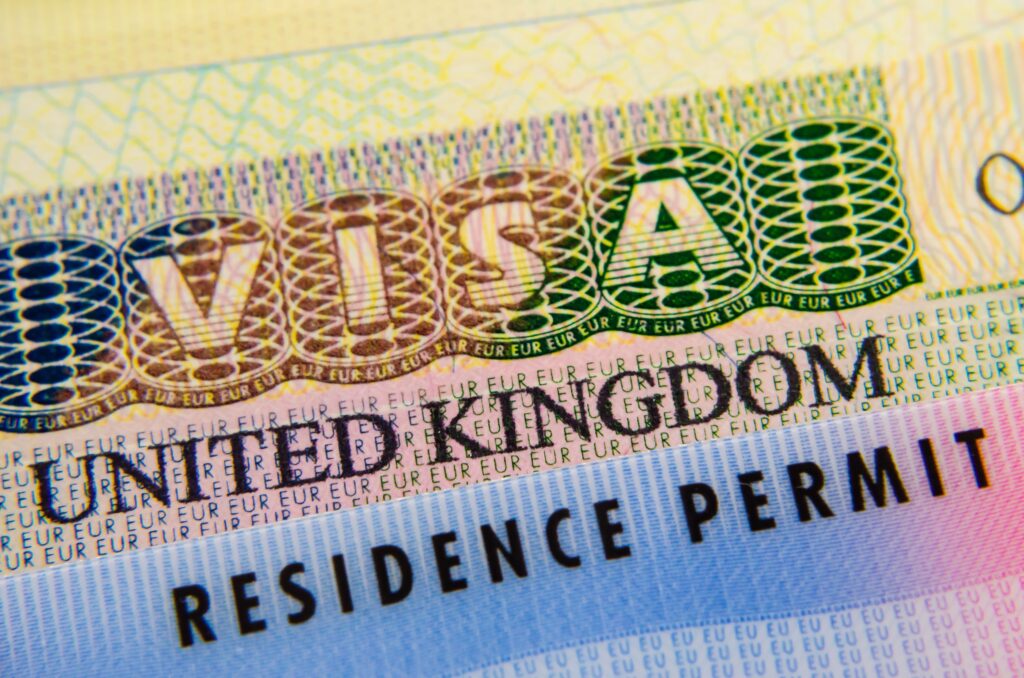Visa scammers targeting overseas care workers with fake UK job offers
An undercover investigation by the BBC has revealed the brazen tactics used by immigration scammers selling fake jobs to unsuspecting foreign nationals desperate to secure a visa to work in the UK.

BBC secret filming exposed the rogue recruitment agents who are targeting foreign nationals applying to work in the UK care sector. The undercover footage captures Nigerian doctor and founder of the agency CareerEdu, based in Essex, explaining how he sells UK jobs to foreign nationals. Believing the BBC undercover journalist was well connected in the UK care sector, Dr Alaneme even tried to recruit her to become an agent for his business, saying it would be very lucrative.
Although the Home Office has already acknowledged that the current system is open to abuse, the BBC’s investigation shows the apparent ease with which these agents can scam people, avoid detection, and continue to profit.
The investigation revealed various tactics used by rogue agents, including:
- Illegally selling jobs in UK care companies
- Devising fake payroll schemes to conceal that some jobs do not exist
- Shifting from care to other sectors, like construction, that also face staff shortages
Care sector visa scams on the rise
Reports of immigration scams have increased since the government broadened the Health and Care Worker visa scheme in 2022 to include care workers.
To apply for a visa, candidates must first obtain a Certificate of Sponsorship (CoS) from a UK employer who is licensed by the Home Office. It is the need for CoS documents that is being exploited by rogue relocation agents.
Dora-Olivia Vicol, CEO of Work Rights Centre, a charity that helps migrants and disadvantaged people in the UK access employment justice said that the scale of exploitation under the Health and Care Worker route is significant and has turned into a national crisis.
She says there is “systemic risk inherent” in the sponsorship system, because it “puts the employer in a position of incredible power” and has “enabled this predatory market of middlemen to mushroom”.
Home Office action to tackle visa abuse
In response to the growing number of visa scams and reports of rogue employers and recruitment agencies, the Home Office is taking steps to tackle visa abuse and worker exploitation in the care sector.
New rules which come into effect on 9 April 2025 will require employers to prioritise hiring international care workers who are already in England before recruiting from overseas. This measure will ensure that those who came to the UK to pursue a career in adult social care can do so, and will support care workers into alternative jobs when their sponsor has had their licence removed.
Illegal working enforcement activity is also being increased, with the Home Office carrying out more illegal working raids and compliance visits for sponsors, particularly in high risk sectors such as adult social care.
To help raise awareness of visa scam tactics and protect foreign nationals from the physical, financial, and emotional risks of visa fraud, the government has also launched several public awareness campaigns to highlight the warning signs of a scam and signpost applicants to support services.
Advice for visa applicants
Visa applicants are reminded to stay vigilant against scams and illegitimate agents offering sponsorship or visa arrangements that sound ‘too good to be true’. Below, we set out our top three tips for detecting and avoiding visa fraud.
Be aware of red flags in the recruitment process:
Spotting the warning signs early can help you avoid falling victim to a visa scam. Applicants are advised to look out for the common spurious claims such as the promise of jobs in the UK, no requirement for English-language tests (IELTS), and exorbitant fees.
Charging candidates for a job is illegal in the UK. Sponsors are also prohibited from passing certain costs onto their sponsored workers, such as the sponsor licence fee, the CoS fee and the Immigration Skills Charge (ISC). Be aware of any employers or recruitment agents asking you to part with large sums of money up front.
Report any suspicions of fraud:
The Home Office will never contact you to ask for money or your personal details. If you receive an unexpected email, telephone call or letter from someone who claims to be from the Home Office, it may be a scam.
You should report your suspicions or incidents to Action Fraud, either on the Action Fraud website or (only if you are in the UK) by phoning 0300 123 2040. Further guidance from the Home Office on avoiding fraud, tricks and scams can be found here.
Engage the services of a regulated immigration advisor:
If you have any doubts, speak to the Home Office or an Immigration Advice Authority (IAA) regulated immigration advisor before parting with any money. Be aware of individuals offering immigration advice without the appropriate qualifications to do so. It is illegal for anyone who is not UK regulated or qualified to give immigration advice.
When choosing an immigration advisor to support you with a UK visa or settlement application or when seeking legal advice on immigration related matters, it is important to look for a practice that is registered with the Immigration Advice Authority (IAA). This is to protect you and to ensure you receive a high standard of service. You can use the IAA Adviser Finder tool to find a registered adviser near you.
Seeking reliable UK immigration advice? Speak to Smith Stone Walters
If you are looking for reliable immigration advice from a qualified, reputable provider, speak to Smith Stone Walters. With over 20 years of service, there is not much we haven’t seen before. No matter how large or small your case is, we pride ourselves on providing a first-class service to all our clients. To find out more, please contact us today.















